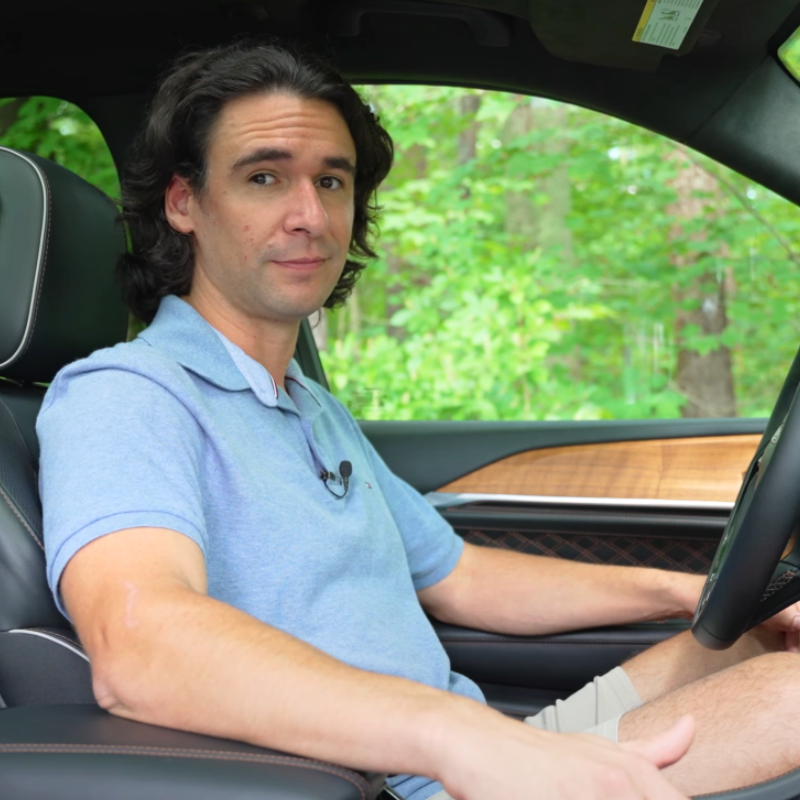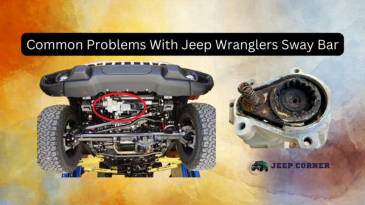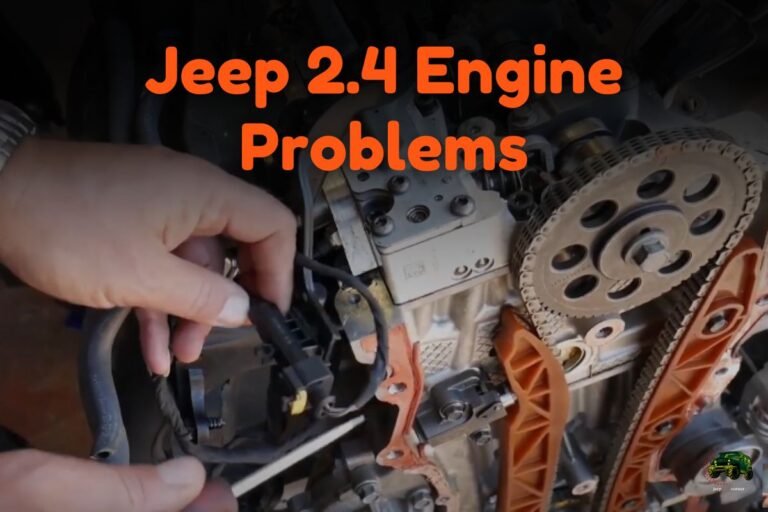Jeep Grand Cherokee Transfer Case Problems
A Jeep Grand Cherokee’s wheel drive transmission depends on its transfer case. This crucial component of your Jeep is encased in a robust compartment. The Grand Cherokee’s front and rear driving axles are connected via this tiny component.
However, as you cover more mileage with your Grand Cherokee and shift from 2-wheel drive to 4-wheel drive, you notice the transfer case problems. And this problem gets more intense if you frequently drive on rough terrains or off-road.
But how to know that your Jeep Grand Cherokee is having transfer case problems, and how can you deal with it? This article will explain everything you need to know!
What is a Transfer Case in a Jeep?
A transfer case is a critical component in 4WD (four-wheel drive) and AWD (all-wheel drive) vehicles, including Jeeps. Here’s a detailed explanation:

- Function: The transfer case distributes power from the transmission to both the front and rear axles, ensuring better traction and stability, especially in off-road or challenging driving conditions.
- Types:
- Part-Time Transfer Case: Allows the driver to manually switch between 2WD and 4WD.
- Full-Time Transfer Case: Automatically distributes power between the front and rear axles as needed.
- Importance: It is essential for maintaining control and performance in 4WD or AWD vehicles. Without a functioning transfer case, the vehicle may lose traction and could suffer damage to other drivetrain components.
Common Signs of a Bad Transfer Case
- Difficulty shifting between 2WD and 4WD.
- Unusual noises during operation.
- Fluid leaks.
Jeep Grand Cherokee Transfer Case Problems
Your Jeep Grand Cherokee might have one of the following issues if it encounters.
Inadequate fluid levels
You might already know that the Jeep Cherokee transfer case leverages automatic transmission fluid to function. But with time, this fluid level can decrease, leading to transfer case problems.
Likewise, when driving the Jeep, you can experience trouble shifting the gears if the fluid level is insufficient in the transfer case. Your vehicle might make grinding sounds or have gear stuck if that’s the problem.
Besides, if the transfer case is broken or damaged, it can lead to gear-shifting troubles.
How to fix it?
To address this issue of the transfer case, you need to check if the transfer case connection is broken or not. If that is the case, you must replace the transfer case completely. However, refill it with an adequate quantity if it’s merely the low fluid in the transfer case.
You can DIY it or ask a professional to do it for you. Here is a video explaining how to fix the inadequate transfer case fluid problem:
Although you need to address this issue upon occurring, experts recommend refilling or changing the transfer case fluid after covering 30,000 miles. This way, it can prevent the problem from arising in the first place.
Chain stretch
The transfer case comes with a chain that assists in driving. But as the chain links go through the stretching strain, it will lose or skip the teeth after some time. The Jeep Grand Cherokee chain stretch can lead to problems when you shift from two-wheel drive to four-wheel drive.
However, how to know that it’s the transfer case’s chain stretch-making problems? You might hear banging noises or some nipping sounds if that is the case.
How to fix it?
To fix this problem, you might need to replace the transfer case. Regardless of that, it is best to seek professional advice to know whether you can repair it.
Broken housing
The broken housing of the transfer case is another reason that leads to problems with Grand Cherokee. If your job asks you to travel off-road more often, you will likely encounter this issue.
Why? Because the transfer case comes in a somewhat fragile housing or enclosure. It is usually comprised of soft metals like magnesium which tends to break upon hitting a rock or other solid objects.
Accordingly, your transfer case may have a hole that makes fluid loss. As a result, your grans Cherokee will have gear-shifting problems or difficulty shifting gears.
How to fix it?
To fix this issue, you need to replace the housing of the grand Cherokee transfer case as it is not a good idea to repair it.
Grinding sounds
Do you hear a grinding and gurgling sound whenever you take off your Jeep Grand Cherokee? If yes, it is an indicator of the transfer case problem.
That is because the output shaft of the transfer case in the grand Cherokee seals off its mechanical noises and fluid loss. Thus, when this output shaft seal is compromised or broken, you will hear crippling noises from your vehicle.
And sometimes, it also leads to fluid loss. And that is why as time passes, the grinding noises progress as the fluid loss increases.
How to fix it?
Check out the bottom of your Jeep. If you suspect noises from the transfer case, check its output shaft. And in case of a broken seal, you need to top off the fluid and seal the output shaft to fix this problem.
The insufficient vacuum of the grand Cherokee
Although not all Grand Cherokee leverage the vacuum transmission method to shift drive modes, we thought it would be best to mention this issue. If your Grand Cherokee uses vacuum pressure to turn to four-wheel drive mode, you will likely encounter this issue.
Similarly, if the vacuum cracks or breaks on your grand Cherokee, it will not shift to 4WD mode. So besides checking the fluid level, pay heed to the vacuum shifting if your vehicle has one.
How to fix it?
Check out the liner of the Grand Cherokee for possible cracks. If you see it, ask a professional to fix it for you!
How to Know Your Grand Cherokee Jeep Has a Bad Transfer Case?
While transfer cases can be real workhorses and endure a lifetime, that doesn’t always happen. Here are some indicators of Grand Cherokee transfer case problems!
- Suppose you encounter trouble with changing gears regardless of the wheel-drive mode. In that case, it is a classic sign of a faulty transfer case. As we mentioned earlier, the low fluid might be the reason, but the internal function failure of the transfer case also leads to such issues.
- Next, if your vehicle exits 4WD now and then, it is probably a transfer case problem. Although it can indicate other issues such as driveshaft or differential, it is best to have a specialist diagnose it if these are something with transfer cases.
- In addition to popping out of four-wheel drive mode, your Jeep Cherokee might not go into 4WD in the first place. While it can be due to other system malfunctions, such as electric circuit issues, the transfer case can be a reason.
- If you drive your Grand Cherokee and sense strange noises, it signals the impending arrival of worse problems. The transfer case may be the source of any grinding or buzzing sounds that change the intensity as you increase or decrease the speed of your vehicle.
However, as mentioned earlier, it will make such noises if your transfer case has a low fluid level or another mechanical issue. For example, worn-out bearings, slack chains, or damaged gears.
- If you assume that grand Cherokee has a transfer case issue, check it up. When you inspect your Jeep Cherokee and see fluid accumulated at the back of the axle transmission, it clearly shows transfer case problems.
Maintenance Tips
- Regularly check and change the transfer case fluid (typically every 30,000 to 60,000 miles).
- Inspect for leaks and address them promptly.
- Schedule professional inspections if you notice any issues.
FAQs
Below is a list of some of Grand Cherokee owners’ most frequently asked questions!
Can you drive Jeep Grand Cherokee with a faulty transfer case?
It is not a good indication to drive your Jeep with a bad transfer case. Most times, transfer case problems make it difficult to shift gears and stay or transfer to the 4WD mode; it will be a risk of accidents.
Moreover, if you also drag your vehicle with a broken transfer case, it will lead to more severe technical problems that will cost you a fortune to fix. And in the worst case, you can ruin your Cherokee axles, transmission shafts, etc.
What does a bad transfer case sound like?
As mentioned above, you can identify the transfer case problem with bad sounds. You can hear odd noises like humming, grinding, whining, or rumbling when driving the Cherokee.
Furthermore, as you take off or stop your Jeep, you also encounter trambling of the vehicle. Although the Jeep generally drives during regular driving, it creates problems only when you change gears.
What happens if the transfer case’s fluid level is low?
With the most common problem of low transfer case fluid, you frequently encounter problems with gear and wheel drive transmission. It is not common to hear strange noises from soft fluid transfer cases, though. However, be ready to face vehicle overheating and other transfer case problems with low fluids.
How much does a transfer case replacement cost?
Note that the transfer case replacement cost and repair cost vary significantly. If you plan to replace the transfer case completely or your vehicle technician suggests shifting the motor, get ready to spend $600 and $900.
Note that the total cost depends on the hourly labor charges for replacing the transfer case and the cost of the parts. Most often, the cost of labor to change the transfer case will be $70 to $100.
In addition, the cost of transferring case parts varies from $500 to $800. Besides, replacing the transfer case can take 3-6 hours, depending on how skillful the technician is and the transfer case cost depends on your jeep model.
What is the expected lifespan of a transfer case?
The life expectancy for the transfer case depends on your driving routine and how old the vehicle is. Many transfer cases can endure a whooping 300,000 miles, but sometimes they only last a few thousand miles. However, keeping your Jeep in maintenance measures will last a long time.
Conclusion
Most often, the transfer cases can serve a lifetime, but experts recommend changing it after 30,000 miles. Moreover, if a Grand Cherokee Jeep is more exposed to off-road driving, it will probably have more transfer case problems.
In most cases, transfer case problems occur when leaks or inadequate fluid levels arise. But sometimes, the internal function failures of the transfer case can also lead to issues such as trouble shifting gears and drive modes, strange noises, etc. Therefore, it is best to seek professional help in case of transfer case problems.





![How To Fix ESP BAS Light on Jeep Liberty [5 Causes & Solutions]](https://jeepcorner.com/wp-content/uploads/2023/11/How-To-Fix-ESP-BAS-Light-on-Jeep-Liberty-5-Causes-Solutions-768x512.jpg)


